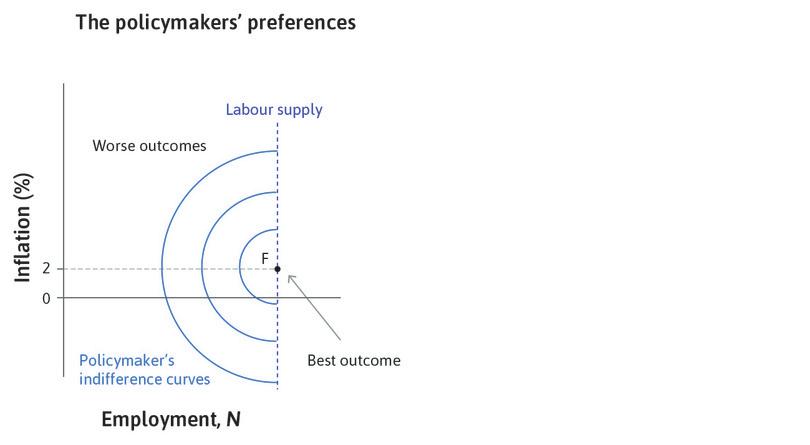Posted by:
Category:
Comments:
Post Date:
Financial Accounting vs Management Accounting Difference and Comparison
Contents:


The financial statements are typically generated quarterly and annually, although some entities also require monthly statements. Much work is involved in creating the financial statements, and any adjustments to accounts must be made before the statements can be produced. A physical count inventory must be done to adjust the inventory and cost of goods sold accounts, depreciation must be calculated and entered, all prepaid asset accounts must be reviewed for adjustments, and so forth. This audit cannot be completed until after the end of the company’s fiscal year, because the auditors need access to all of the information for the company for that year. Most accounting tasks can be divided into financial accounting and managerial accounting. It is useful to describe the differences between these two aspects of accounting, since each one describes a distinctly different career path.

Similar to financial accounting, managerial accountants need to have a bachelor’s degree in accounting or other related fields, as well as a unique skill set. Managerial accountants should have excellent communication skills and be able to work as part of a team. As with any accounting job, managerial accountants should have excellent analytical and numerical skills. Lastly, they should be detail-oriented and understand business fundamentals. Financial accounting is a set of processes that include recording, summarizing, and reporting a company's financial transactions that result from business operations during a specific period of time. By contrast, managerial accounting is much less controlled and centralized because the information is only meant for internal use.
Cost Managerial Accounting Reports
In financial accounting, rules are set by specific standards like IFRS or GAAP . In contrast, management accounting is not legally required to follow specific criteria, as the reports are only used within the organization. A managerial accountant is responsible for recording and processing data that will help the company perform better in terms of budgeting.
Understanding accounting will also help you analyze your profits and make informed strategic business plans. Financial accounting requires that financial statements be issued following the end of an accounting period. Managerial accounting may issue reports much more frequently, since the information it provides is of most relevance if managers can see it right away. Managerial accounting almost always reports at a more detailed level, such as profits by product, product line, customer, and geographic region. Financial accounting reports are more likely to be distributed to outsiders, while the results of managerial accounting are more likely to only be used by insiders. In either case, developing your financial acumen is key to making better business decisions.
Managerial Accounting FAQ
Managerial accounting produces information that is used within an organization, by managers and employees. It is legally required to prepare financial accounting reports and share them with investors. Certain figures may be broken out for materially significant business units.
Depending on your answers to those questions, you may want to consider financial accounting. Cash FlowCash Flow is the amount of cash or cash equivalent generated & consumed by a Company over a given period. It proves to be a prerequisite for analyzing the business’s strength, profitability, & scope for betterment. Retained EarningsRetained Earnings are defined as the cumulative earnings earned by the company till the date after adjusting for the distribution of the dividend or the other distributions to the investors of the company. It is shown as the part of owner’s equity in the liability side of the balance sheet of the company. Prepaid ExpensesPrepaid expenses refer to advance payments made by a firm whose benefits are acquired in the future.
What is managerial accounting?
Managerial accounting statements, on the other hand, are presented at any period of time that is convenient for the productive management of a business. They may be fixed over a period of time but this fixed period is entirely flexible and comes at different times and forms within a month. Financial accounting, on the other hand, only aims to present information about the historical financial data of a company.
Managers should understand that in order to obtain information quickly, they must accept less precision in the reporting. While there are several reports that are created on a regular basis (e.g., budgets and variance reports), many management reports are produced on an as-needed basis. Top 7 Types Of AccountingThere are different types of the accounting which an organization can follow as per the scope of its work and need of stakeholders. The purpose of financial accounting is to showcase an accurate and fair picture of the company’s financial affairs to potential investors, government, and existing shareholders. The purpose of management accounting, on the other hand, is to facilitate the management in making effective decisions on behalf of the shareholders. Professionals pursuing accounting careers should understand the overlaps between financial accounting and managerial accounting.
Main Objectives of Both Accounting Practices
It helps them set realistic goals, and encourages an efficient directing of company resources. Through this technique, managerial accountants ensure that the company's true capital is determined, preserved, and maintained. Financial statements are made more accurate and forecasts for future asset valuation become easier and more reliable.
- Inventory turnover analysis involves the process of studying this ratio and coming up with enough information for better business administration.
- Thankfully, managerial accounting is much different from financial accounting.
- By analyzing the cost of each product, activity, and facility, among others, detailed and useful information is provided to the management of a company.
- Despite many similarities in approach and usage, there are significant differences between the financial and managerial accounting.
- Companies optimize cash flow so that they do not worry about future events and insufficient finances to complete them.
- This differs from financial accounting, which produces and disseminates official financial statements for public consumption that conform to prevailing accounting standards.
Some of the other managerial reports taken into account include competitor analysis reports, order information reports, and project reports. Apart from being internally generated, all managerial reports can also be outsourced to external expert institutions so that they remain as accurate as possible. Overall, performance reports help to compare the final outcome of a business workflow or operation with the initial budget and standard set for it. Decisions as to the future operations of a company are then easily carried out. Calculating the inventory turnover ratio helps companies to better determine the price of products and make better decisions on the production, marketing, and purchase of new inventory. Optimization of cash flow ensures that a company has enough liquid assets to cover immediate expenses.
Financial vs Management Accounting : 8 Key Differences (Chart)
The value of Outback Corporation’s 20x1 ending finished-goods inventory under absorption costing. She holds a Bachelor of Science in Finance degree from Bridgewater State University and helps develop content strategies for financial brands. Keep reading to explore how they are different by reading what each specialization prioritizes and accomplishes. Envision yourself doing some of the tasks described for this type of accounting to begin to form an opinion on which one feels right for your personal goals.
Owners of businesses invest capital in businesses and need accurate information to be able to access their level of profit or loss from their business operations. This allows them to know if business operations, as well as capital investments, need to be expanded or contracted. Managerial accounting only exists to help make these decisions much easier, accurate, and effective in relation to a company's budget and achieving business objectives. However, it can be difficult for internal managers in a company to interpret these accounting records compiled by accountants and bookkeepers because they are mostly aimed at external parties. Because it is manager oriented, any study of managerial accounting must be preceded by some understanding of what managers do, the information managers need, and the general business environment. Management accounting is a field of accounting that analyzes and provides cost information to the internal management for the purposes of planning, controlling and decision making.
Managerial accounting focuses on operational reporting to be shared within a company. In this role, they analyze the internal financial processes of an organization and use that data to forecast, make suggestions, aid in decision-making, set budgets, and more. This role may handle everything from investment decisions to overhead costs. No external, independent auditors are needed, and it is not necessary to wait until the year-end.
Is Wells Fargo A Good Bank? - Rebellion Research
Is Wells Fargo A Good Bank?.
Posted: Thu, 13 Apr 2023 13:55:31 GMT [source]
Overachieving and constantly https://1investing.in/ive departments and employees are also easily identified, giving a company an idea of its most valued human assets. Underachieving departments and employees are provided with these performance reports and called to order according to their performance metrics. Outstanding invoices are tightly followed while debtors and repayment issues are easily identified. Revaluation is an accounting technique that involves the review of the recorded book value of an asset in relation to its true market value. Revaluation accounting is only used where the fair value of an asset can be reliably measured.

For managerial accounting, marginal costing works closely with break-even analysis. Additional products are added to determine the unit volume that makes the total sales revenue equal to the total expenses. This gives companies enough information in determining the price points of products.
Lastly, do not overlook the higher education and certification or licensure requirements as those often help professionals choose which specialization they want to pursue. Cash Flow StatementA Statement of Cash Flow is an accounting document that tracks the incoming and outgoing cash and cash equivalents from a business. Term DebtLong-term debt is the debt taken by the company that gets due or is payable after one year on the date of the balance sheet. It is recorded on the liabilities side of the company's balance sheet as the non-current liability.
present value formula accounting involves the compiling, analyzing, and interpretation of financial records for managers. It helps managers make informed internal decisions for the benefit of the company. NecessityEssential when business growsValuable when coming to the decision-making strategies#6. RulesHeavily regulatedLess regulatedIt must be concluded that neither financial nor managerial accounting is less essential than the other one. They both play a significant role in growing a small business, and the owners need to pay attention to both of them to increase the company’s operational efficiency.
For any public company, financial accounting processes must abide by a very specific set of rules provided by the Generally Accepted Accounting Principles , the accounting standard adopted by the U.S. Since Frank’s customer brings in a lot of revenue, you need to devise a plan that will help to offset that loss. However, when you review your financial statements for the past six months, you see that revenue is down across the board. The following day, you and your staff create a plan for bringing in more revenue, starting with expanding sales territories. Managerial accounting typically runs a variety of operational reports throughout the month, while financial accounting runs financial statements at the end of the accounting period.
